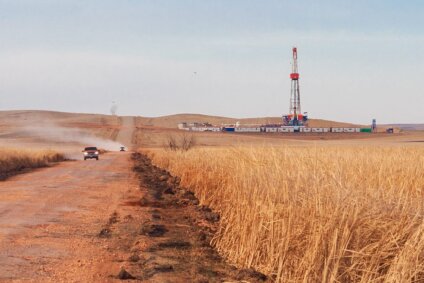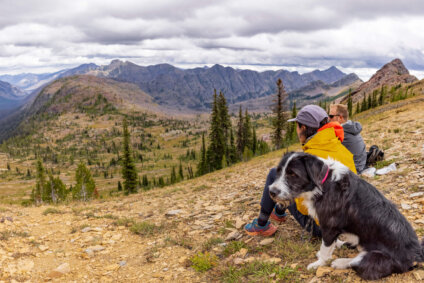What Would Cecil Garland Say?
The story of the Scapegoat Wilderness holds important questions and lessons for Montanans today.
In 1972, nearly 240,000 acres of federal public land lying between Montana’s iconic Rocky Mountain Front and storied Blackfoot River Valley became the first acres in the nation to enter the wilderness system at the behest of ordinary citizens. The story of the Scapegoat Wilderness has influenced every effort to protect wild country during the past 40-plus years, not just in Montana, but also throughout the nation.
And it is a good story, full of colorful characters and bugling elk. On some levels it is also a heartbreaking tale of sacrifice and the heavy emotional burden that comes along with standing up for what you believe is right.
In early May, we lost a hero of this story with the death of Cecil Garland, who passed away at the age of 88 with his family by his side.
Garland was an Air Force veteran who owned a hardware and sporting goods store in Lincoln in the 1960s. For over a decade, he fought fiercely, from his own community to the halls of Congress, to ensure that the Scapegoat received the respect, and ultimately, the permanent protection it deserved.
Like every good story, the tale of the Scapegoat has many lessons.
One of those lessons is that connecting people to wild places can be a life-changing experience. It was a trip into the woods that convinced Cecil Garland to risk his family’s business and their reputation to prevent the Forest Service from building roads into the backcountry.
He shared the story of this first trip during his testimony to Congress after Montana Senator Mike Mansfield introduced a bill to protect Scapegoat in 1968.
We camped that first night on a small bench above Ringeye Falls . . .
We took from our duffle an old elk reed bugle, and as the chill air fell with the sun, we shattered the calm of that September evening with a blast from our elk call. Then, almost as by magic, above us on Red Mountain, a bull elk bugled his challenge that this was his territory . . . and over on Webb Lake Hill still another bull called back that this was his home.
All through the frosty fall air the calls echoed back and forth and I knew that I had found wilderness.
I would not sleep that night, for I was trying to convince myself that this was really so; that there really was wild country like this left and that somehow I had found it.
But all was not at peace in my heart for I knew that someday, for some unknown reason, man would try to destroy this country as man had altered and destroyed before.
That night I made a vow, that whatever the cost, for whatever the reason, I would do all that I could do to keep this country as wild as I had found it.
Another lesson is the importance of having bi-partisan in Congress. When Montana’s lone Republican Congressman, James Battin, heard about the bill to protect the Lincoln backcountry and listened to Cecil’s heartfelt words, his response was to one-up Democratic sponsors Mansfield and Metcalf by introducing his own bill in the House to protect roughly three times as many acres. When the bill faced opposition from other states, the Montana delegation stuck together – Republican and Democrat – and never backed down.
Ultimately, homegrown perseverance combined with the iron will of elected officials from both political parties paid off. Congress passed the bill designating the Scapegoat Wilderness and it was signed into law on August 20, 1972.
Today, many Montanans are following in Cecil Garland’s footsteps to protect public lands adjacent to the Scapegoat Wilderness along Montana’s Rocky Mountain Front. Ranchers, teachers, farmers, and business owners have worked for nearly a decade to piece together a bill – the Rocky Mountain Front Heritage Act – that would protect access to wild places like the Upper Dearborn Canyon, Crown Mountain, and the West Fork of the Teton.
Just like the Scapegoat legislation, the Heritage Act has widespread support across Montana and recently received a bipartisan vote in a Senate Committee. Montanans have risked much by wading into the debate over the fate of the Rocky Mountain Front. They’ve done it because they believe, like Cecil Garland believed, that doing what is right is not always easy.
Montanans are now asking, will Congressman Daines follow in the footsteps of Republican Congressman James Battin and choose a bipartisan path to protect Montana’s backcountry? Or will he remain neutral, choosing to risk nothing one way or the other?
If Cecil were alive today, I think we know what he would say: let’s keep this country as wild as we found it.
Let’s speak up for the right of all people, present and future, to enjoy these special places. Let’s represent the best interests of all Montanans by working together to protect the Rocky Mountain Front.
Brian Sybert is the Executive Director of the Montana Wilderness Association.
Stay Connected
"(Required)" indicates required fields


